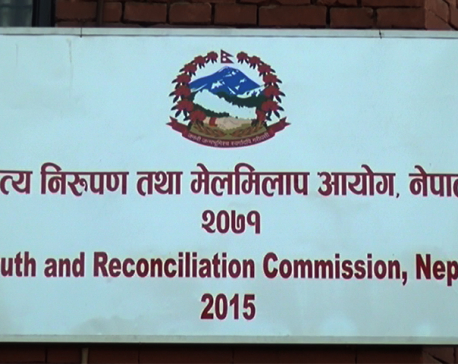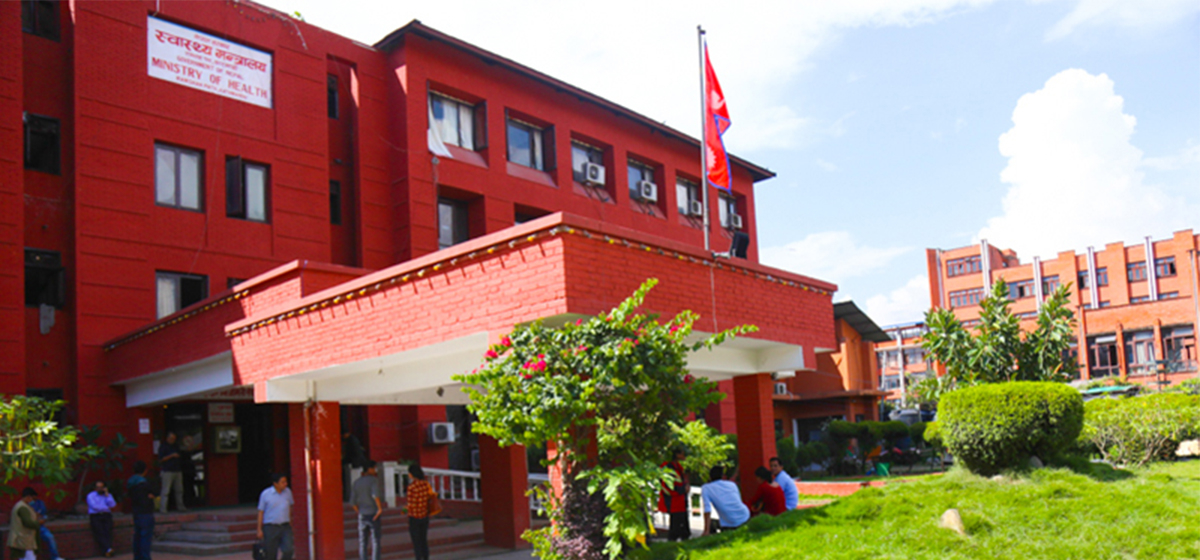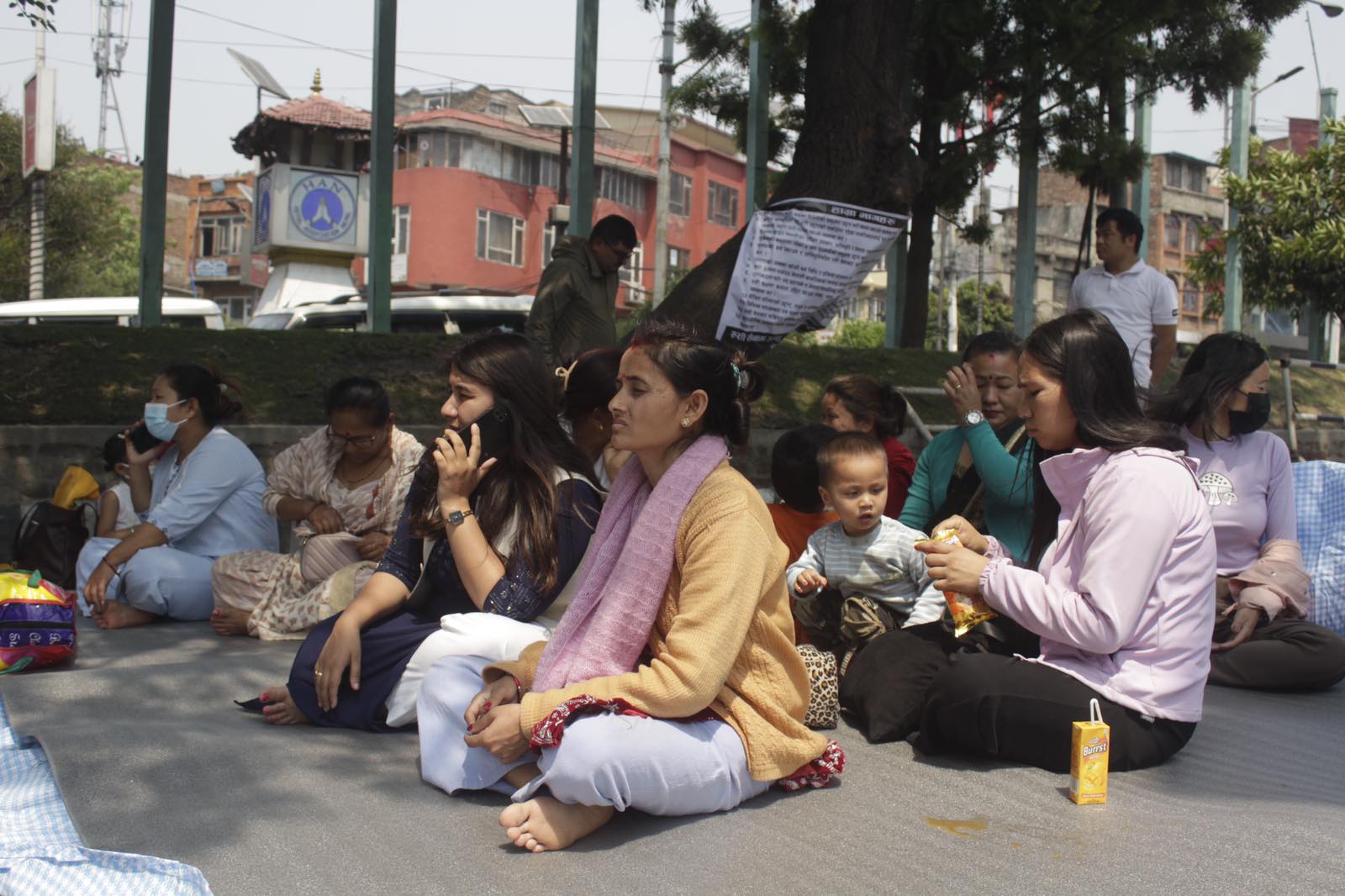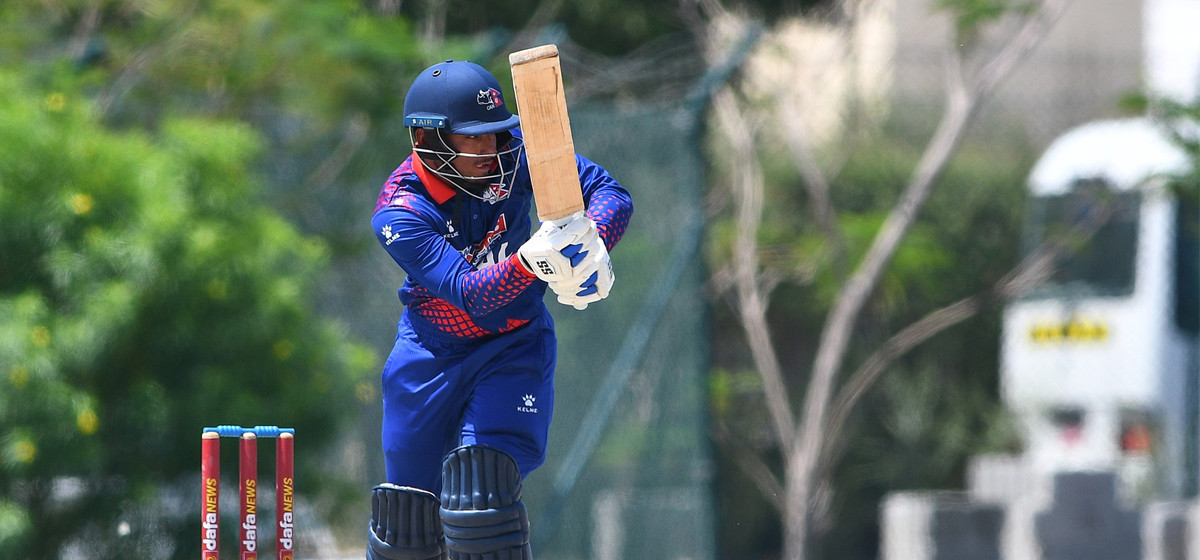
OR
Transitional Justice
Disgruntled group calls on Swiss to stand firm on int’l standards
Published On: December 15, 2018 07:43 AM NPT By: Republica | @RepublicaNepal
KATHMANDU, Dec 15: Dismayed over ongoing efforts to mandate a high-level political mechanism to deal with the Maoist insurgency-era cases, a group of conflict victims, human rights activists and lawyers on Friday submitted a memorandum to Swiss Ambassador to Nepal, Elisabeth Bon Cappler.
In the memorandum, the dissident group has appealed to the United Nations and Switzerland to stand consistently for ending impunity and fulfillment of the victims’ right to truth, justice and reparations.
They have also expressed dissatisfaction over the Swiss-sponsored Bangkok meeting on transitional justice. “We would like to express dissatisfaction over the so-called Bangkok meeting on transitional justice sponsored by the Swiss Embassy in Nepal,” the group stated in the memorandum adding, “It unfortunately undermined the basic norms of democracy, transparency, rule of law, human rights and justice.”
A gathering of political leaders from both ruling and opposition parties, human rights activists and lawyers was held in Bangkok in the last week of November to discuss possible ways to complete the long-stalled transitional justice process.
The Bangkok gathering, reportedly funded by the Swiss government, was held after most of the conflict victims came under the banner of the Conflict Victims Common Platform
The platform unveiled a charter on resolving the insurgency-era cases after it was endorsed by a nation-wide gathering of the conflict victims. The charter stresses the need for restructuring the existing transitional justice mechanisms – Truth and Reconciliation Commission and Commission of Investigation on Enforced Disappeared Persons – and seeks the involvement of the platform in the mechanism. They have also stressed the need for renewing political commitment to concluding the transitional justice process through an “indigenous model”.
After the Bangkok meeting, a smaller group of conflict victims, human rights activists and lawyers have come out in opposition to the political mechanism idea. Activists close to the development say the political parties are for forming a high-level mechanism so that they can resolve the cases in time.
However, the dissatisfied group believes resolving the cases with the involvement of the political parties would undermine justice.
Political parties and conflicts victims have been accusing the TRC and CIEDP of failing to expedite the transitional justice process. Over 65,000 conflict-era cases are pending at the commissions since the last four years.
The disgruntled group, however, has urged the Swiss government not to ‘endorse any activity supportive to perpetrators-driven transitional justice.’
In the memorandum, the group has called on the international community to promote, protect and ensure human rights and peace as per international standards.
You May Like This

Conflict victims, rights activists object to the TRC bill presented in the parliament, demand immediate withdrawal
KATHMANDU, March 29: Conflict victims and human rights activists have expressed serious objection to the provisions in the bill tabled... Read More...

Who did this?
When the terms of transitional justice bodies—Truth and Reconciliation Commission (TRC) and Commission of Investigation on Enforced Disappeared Persons (CIEDP)—came... Read More...

Victims, HR activists seeks UN help over transitional justice
KATHMANDU, Nov 28: Concerned over the recent developments with regard to the transitional justice process, a section of human rights activists... Read More...


Just In
- In Pictures: Families of Nepalis in Russian Army begin hunger strike
- New book by Ambassador K V Rajan and Atul K Thakur explores complexities of India-Nepal relations
- Health ministry warns of taking action against individuals circulating misleading advertisements about health insurance
- UAE secures spot in ACC Premier Cup final, defeating Nepal by six wickets
- NC to boycott Gandaki Province Assembly, submits letter to Speaker
- 850 grams of gold seized from Indian national at TIA
- Rupandehi District Court orders to release Dipesh Pun on a bail of Rs 400,000
- Teachers’ union challenges Education Minister Shrestha's policy on political affiliation













_20240311121839.jpg)

Leave A Comment